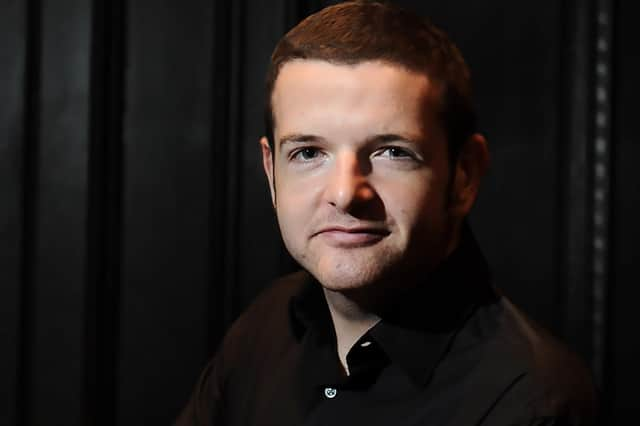Book review: The Black Dog, by Kevin Bridges


Long ago, when I started reviewing novels for The Scotsman, and then writing some myself, publishers often didn’t have much in the way of a marketing department but they had editors who did much more than correct copy. Charles Monteith at Faber and Diana Athill at Andre Deutsch were two editors who might fairly be called their authors’ creative partners, Monteith guiding William Golding to an understanding of what he was trying to say, Athill once describing her work as being like removing layers of brown paper from an awkwardly shaped parcel to reveal the attractive present it contained. Such editors are rare now, though the marketing department may be well staffed. Reading Kevin Bridges first novel, I wished it had found an editor like Monteith or Athill.
Bridges is already a celebrity – “one of Britain’s most-loved comedians”; therefore very marketable. His name and reputation should sell the book, and indeed once the reader has, as it were, discarded the layers of brown paper, there is much to enjoy and admire. But time and again scenes are prolonged after they have made their point and served their purpose, so that what might have been a spare and compelling 200 page novel is stretched out to twice that length. Much therefore drags. Much of the dialogue is tediously predictable. One has read it too often in the lower reaches of tartan noir, though refreshingly this isn’t really a crime novel but only one with tiresomely familiar crime elements, necessary for the plot, but not entirely convincing.
Advertisement
Hide AdThere are two main characters Declan Dolon and James Cavani, brought up, a generation apart in the same poor quarter of Glasgow. Dolon is a fat, troubled young man with literary ambitions. The novel opens with a piece he is reading to a writers’ group. It flops. He turns to the usual consolation, booze. He rings for an uber and heads for a pub to meet his friend Doof Doof, described in the blurb as a “pseudo-intellectual” – unkindly and not, I think, accurately. He thinks of James Cavani – actor, writer and director, his hero as a local celebrity who got away. Besides Doof Doof his only real friend is his Labrador, Hector, though he is fond of his sister and his loving mother who worries about him. In the pub some local gangsters mock the barmaid whom he fancies. Very drunk, he insults one of them, gets into a fight and is hustled away. The next day one of the gangsters, a former schoolmate, beats him up.
The next section is Cavani’s. Arriving in London to promote his latest film, he gets a text saying his sister has been taken to hospital unconscious after a drug overdose. He cancels his meeting and interviews, to the fury of his agent, and books the next flight to Glasgow. He meets people who recognize him, one a successful but dissatisfied gangster, but much of this section is taken up with his sister’s backstory, something that would have been better done more briefly. It does of course establish him as a caring person, more sympathetic than might have been expected. One of the pleasing and successful features of the novel is that fundamentally both Dolon and Cavani are good and admirable characters. So it’s perhaps not surprising when they meet outside the hospital where the sister is being treated, and from which Dolon has been released. To his embarrassment, Dolon’s mother approaches Cavani and tells him Dolon wants to be a writer himself. And so it goes…
There is much to like in the novel: a warmth and decency, a celebration of friendship, a sense of the importance of sympathy for others. There is also an understanding of how hard it can be for young people to avoid being lured or dragged into a destructive way of life – self-destructive too – in a deprived part of a great city, where recourse to violence may seem natural, even inevitable for so many. In short, there is a good novel here, struggling against cliché and overload. Perhaps there is an element of autobiography. I don’t know. But it could have been so much better. There’s enough to let one think Kevin Bridges will write a better, and indeed very good, novel if he is not distracted by the temptations and rewards of media celebrity.
The Black Dog, by Kevin Bridges, Wildfire, 390pp, £20